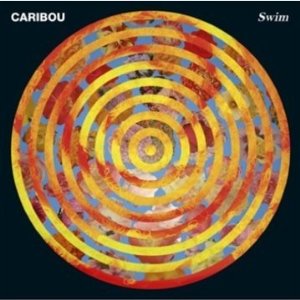In spite of what we do when we peel apart the making of music, there is always something that escapes us – an impression in the air that is carried off before it can be pinned, moth-like, to the museum wall. Only so much can be explained by the year a track was made or how it was put together. Sociological and technical interpretations are blank signposts: they’ll show you where, but not explain what, or why, the destination matters. Who can say what it is that happens in your brain when a song eats you whole, suddenly, half way through breakfast, only to spit you out three minutes later to a colder cup of tea?
Dan Snaith is a man who knows that music is two parts maths to one part magic. The Canadian musician spent last decade, in part, following in a family tradition of mathematical virtuosity that culminated in him being appointed a professor at Imperial College, London.
Meanwhile, in music, two albums under the name Manitoba, Start Breaking My Heart and Up In Flames, revealed an inconsistency of style that started with the post-IDM, contemplative mood-music on the former and ended with squalling brass, swirling vocals, and big-bottomed 60s pop of the latter. The U-turn between the two was dramatic, seemingly inexplicable, and saved by one facet: even in his most shambolic moments, Snaith was never loose on production. These were tight records that travelled on parallel roads, exploring opposing ways of creating sounds that surpassed the rational endpoint of impact.
With The Milk Of Human Kindness (2005) and his Polaris prize-winning Andorra (2007), Snaith continued his investigation into the mathematical structures of music. Riffs would sit static over ascending basslines, chords would circle, crow-like, as layers upon layers accumulated, ready for the jerk of a twingeing harmonic change. His vocals, as he grew in confidence, remained dream-like and evocative, even when they sat over anthems (‘Melody Day’). He learned to write songs, but most of the time chose not to, letting experiments in structure drift rather than descend into cliché. And his favourite trick, the drumrolling-build and plunge into silence before a cymbal-crashing chorus, became a familiar motif.
Snaith’s music became associated with the 60s pop songs he appropriated over the course of these albums, so it was no surprise that he would decide to take Andorra’s follow up somewhere new. It was never his game to be a psych-pop revivalist. Style was just his petri dish.
With Swim the hand-held dish becomes a whole indoor pool. Snaith no longer dabbles in pipettes of retro pop, but has immersed himself in bigger things: how to render clean, digital sounds dirty; disco, and darkness. Gone is that forced sunny demeanour in favour of bone-smashing hard white tiles of sound, while any light appears refracted from distant surfaces. Swim is an album that comes in from the sunfields and retreats into night.
Inspired, supposedly, by the swimming lessons his wife bought him for Christmas, Swim demonstrates control that should be impossible underwater. This is a new formula, one with a blank space after the sum; a man-made uncertainty turning inside dark waters between invisible walls. Those who listened carefully to ‘Niobe’, the eight-minute closer to Andorra, can probably see now where the path was leading. At the time, all the signposts were blank.


